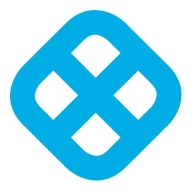

Harness and SonarQube Cloud are competing in the software development tools category. SonarQube Cloud is seen as the stronger product due to robust features, which justify its higher cost.
Features: Harness provides continuous delivery, cloud cost management, and deployment automation, offering a comprehensive suite. SonarQube Cloud delivers advanced code quality and security analysis, appealing to teams focused on code integrity. It offers a specialized feature set for code review, crucial for enterprises prioritizing software quality.
Ease of Deployment and Customer Service: Harness offers a flexible deployment model with seamless integration into existing environments, alongside reliable customer service during setup. SonarQube Cloud, being cloud-native, simplifies deployment without extensive infrastructure needs, though customer service may require improvements. Its easy deployment is beneficial for organizations with limited resources.
Pricing and ROI: Harness is known for cost-effective pricing with significant ROI due to cost management and automation features. SonarQube Cloud, with a higher initial cost, provides strong ROI through enhanced code quality features, reducing long-term technical debt. Harness offers lower setup costs, while SonarQube Cloud's improvement in code quality standards makes it a strategic investment for quality-focused enterprises.


Harness offers a comprehensive toolset for automating deployment processes and enhancing software update efficiency. It's lauded for its CI/CD capabilities, feature flagging, and real-time deployment monitoring. Key features include an intuitive UI, secret management, and robust rollback functionalities, all contributing to improved productivity and reduced errors in DevOps environments.
SonarQube Cloud offers static code analysis and application security testing, seamlessly integrating into CI/CD pipelines. It's a vital tool for identifying vulnerabilities and ensuring code quality before deployment.
SonarQube Cloud is widely used for its ability to integrate with tools like GitHub, Jenkins, and Bitbucket, providing critical feedback at the pull request level. It's designed to help organizations maintain clean code by acting as a quality gate. This service supports development methodologies including sprints and Kanban for ongoing vulnerability management. While appreciated for its dashboard and integration capabilities, some users find initial setup challenging and note the need for enhanced documentation. The recent addition of mono reports and microservices support offers deeper insights into security and code quality, though container testing limitations and false positives are noted drawbacks. Manual intervention is sometimes required to address detailed reporting, with external tools being necessary for comprehensive analysis. Notifications for larger teams during serious issues and streamlined integration of new features are also areas of improvement.
What are the key features of SonarQube Cloud?In specific industries, SonarQube Cloud finds application in finance and healthcare where code integrity and security are paramount. It allows teams to identify critical vulnerabilities early and ensures that software development aligns with industry regulations and standards. By continuously analyzing code, it aids organizations in deploying secure and reliable applications, fostering trust and compliance.
We monitor all Static Application Security Testing (SAST) reviews to prevent fraudulent reviews and keep review quality high. We do not post reviews by company employees or direct competitors. We validate each review for authenticity via cross-reference with LinkedIn, and personal follow-up with the reviewer when necessary.